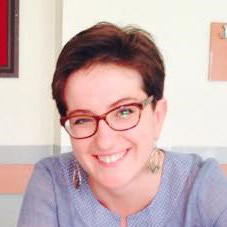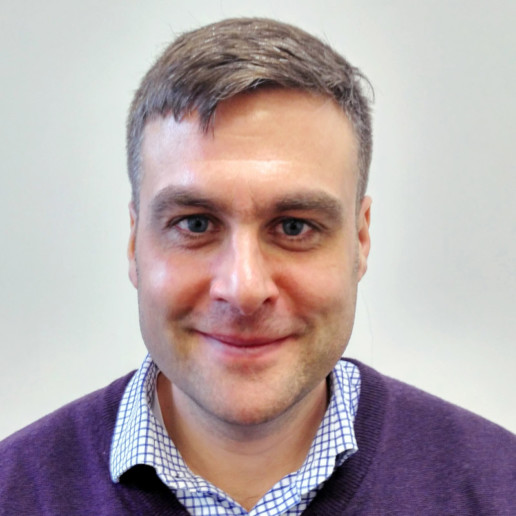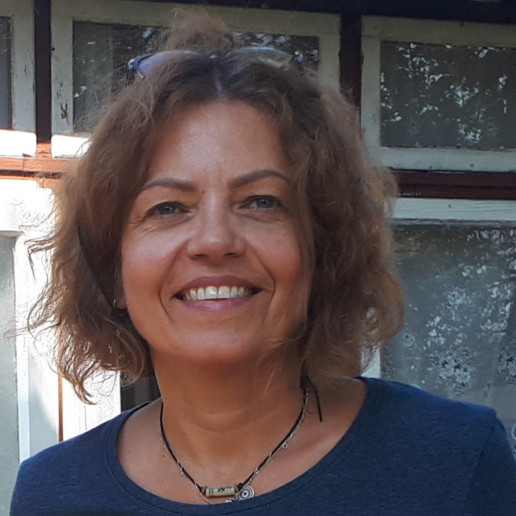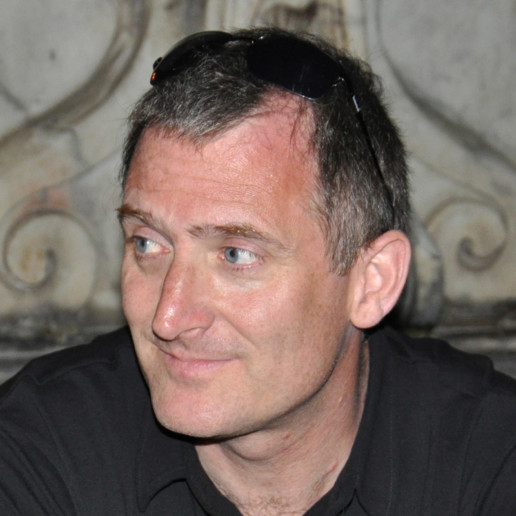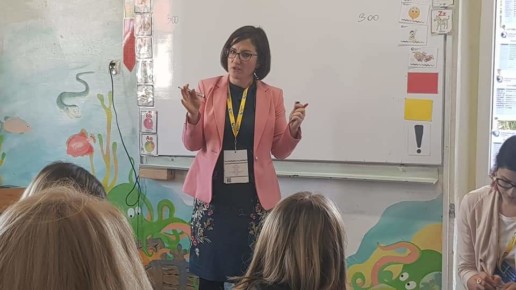
Welcome to the International House Wrocław Teacher Training Centre!
Whether you are new to the world of TEFL and want to obtain an internationally recognised teaching qualification or have been in the profession a while and wish to take the next step in your career, you’ve come to the right place. We run Cambridge CELTA, Cambridge Delta and a range of other specialised courses in areas such as Teaching Younger Learners or Teaching English for Business.
Since its opening in 1994 our school has quickly become one of central Europe’s foremost teacher training centres. Over these years we have earned a worldwide reputation for excellence in what we do and built a team of highly experienced, dedicated trainers.
The historical city of Wrocław is a fantastic location to take a training course. This dynamic, charming place truly has something for everyone. You will want to come back to enjoy it properly once your course is over!
We hope you’ll find this site clear and informative but if you have any questions or queries, do not hesitate to get in touch – we’ll do our best to help you.
We look forward to meeting you!
What is CELTA?
(Scroll down for details of Our CELTA courses.)
The Cambridge CELTA (Certificate in Teaching English to Speakers of Other Languages) is the most popular and widely recognised initial qualification in teaching English as a foreign language. CELTA has enabled many teachers to obtain their first position and has long been considered a basic requirement for teaching English to adults worldwide. It is regulated by the UK Office of Qualifications and Examinations Regulation at level 5 on the Qualifications and Credit Framework. The course is highly regarded by employers around the world as providing sound initial training. This is the qualification you need if you plan to seek employment as an English language teacher in a quality language school.
Who’s the course for?
The CELTA is an introductory course with a focus on understanding the principles of effective teaching and learning practical skills for teaching adults. It is suitable for:
• people with little or no previous teaching experience
• teachers with experience but little or no formal training
• practising teachers in need of a qualification with international recognition
• practising teachers who want to develop their use of communicative methodology.
Applications from both native and non–native speakers are welcome. All applicants are required to have a very high standard of both spoken and written English (CEFR level C1-C2).
What are the benefits of the course?
Above all, a CELTA course will give you invaluable hands-on experience of teaching real adult learners with guidance and feedback from experienced tutors. It will help you:
• Understand the underlying principles of effective teaching
• Learn about how the English language works
• Acquire a range of practical skills and techniques for teaching English
• Choose appropriate resources for teaching and testing
• Build your confidence in the classroom.
What are the entry requirements?
Candidates must:
• be at least 18 years old
• have a standard of education equivalent to that required for entry into higher education
• be proficient in spoken and written English (at or close to CEFR level C2).
Candidates without formal educational qualifications at the level indicated above may still be accepted if they can demonstrate that they would be likely to complete the course successfully.
Is this the right course for me?
If you want to be an English language teacher and you fulfil the basic entry requirements above, you should also consider the following points:
• CELTA is practical rather than academic.
• If you want to teach others, you must understand the workings of English language yourself – or be prepared to learn about them.
• Teaching requires good interpersonal skills.
• You will need to be able to give clear instructions, and explain effectively and patiently when learners don’t understand.
• You will be asked to reflect on your lessons, spot your strengths and weaknesses, and think of ways to improve.
• You should be open to hearing feedback on your teaching, from both tutors and peers. This will always be supportive but at times it will also be critical.
• It is possible to fail a CELTA course if you don’t meet the standard required.
• The course is extremely rewarding but it is also very hard work. Most candidates enjoy the course but also find it stressful at times.
If none (or almost none!) of the above worries you, then why not give it a try?
Our CELTA courses
How is the course run?
It can be run face-to-face or delivered on-line, either as an intensive or a part-time course.
How long is the course?
The in-school programme is an intensive, 4-week course. The on-line course takes 5 weeks. There is also a PART-TIME on-line course which is 15 weeks long. The classes on the part-time course take place on Fridays in the evening (18.00 – 21.00) and on Saturdays (10.30 – 16.30).
What does the course include?
The scheduled 120 hours of the course comprise:
• daily input sessions involving demonstration and discussion of teaching techniques and principles, and practical language analysis. Extensive use is made of group activities and co-operative learning.
• daily teaching practice sessions with adult learners at two distinct levels of ability. Candidates will typically teach eight lessons over the course.
• feedback on teaching practice with tutors and peers. This usually takes place the day after teaching practice to allow time for reflection.
• assisted lesson planning. Candidates have the opportunity to discuss and refine their lesson plans with the assistance of course tutors the day before they teach.
• guided observation of experienced teachers. This includes both video and ‘live’ observations, totalling six hours.
• four written assignments on practical areas of teaching.
How much work is involved?
The CELTA is extremely intensive. We give a lot of emphasis to this fact during interviews for the course but still, many candidates are taken aback by the pace and volume of work which the intensive CELTA requires. In addition to the scheduled elements of the course mentioned above, candidates also need to:
• prepare thorough lesson plans and professionally-presented materials
• reflect on and write evaluations of your own and others’ teaching
• do reading and research for your written assignments
• write your assignments and submit them on time.
In other words, successful participation in the course means four weeks of long days and busy weekends! Candidates must be certain that they’ll be able to dedicate all their attention to the course for the entire period without distractions of a professional or personal nature.
How is the course assessed?
There is no final examination. Assessment is based on performance in teaching practice and written assignments. Candidates need to pass both these elements in order to be awarded the CELTA certificate. They are also required to maintain a portfolio of all your coursework. An external assessor appointed by Cambridge moderates each course.
What will I get at the end of the course?
Successful candidates will receive one of three grades: Pass, Pass B, or Pass A. A straight Pass is the most common grade. In addition to an official Cambridge CELTA certificate, candidate will also receive a personalised report on their progress and attainment from the course tutors.
When can I do a course? How much does it cost?
Each year we run between seven and nine courses. See Dates and fees for exact details. The standard course fee is 5,000 PLN, with a 250 PLN discount for early payment.
Why CELTA?
1. What’s the difference between a CELTA and a TEFL course?
It depends which TEFL course! TEFL simply stands for Teaching English as a Foreign Language, so CELTA is one of many TEFL courses offered by various institutions. CELTA is the most popular and probably the best regarded. It’s governed by Cambridge English Language Assessment, part of the University of Cambridge.
2. Why choose the CELTA over other TEFL courses?
Because the CELTA is what employers want. If you apply for a teaching job in a private language school, you’ll almost certainly be asked whether you hold a CELTA certificate. In your search for a suitable TEFL course, you will encounter courses advertised as ‘CELTA equivalent’ – which clearly shows that the CELTA is considered a model course in TEFL and how well the name is known. If you can have the original, why opt for an equivalent?
3. So why is the CELTA so respected?
The CELTA is very much a hands-on, practical course rather than a theoretical, academic one. It gives you exactly what you need in the classroom: basic knowledge and tools for effective teaching. The programme gives you experience of teaching real learners, and your performance is largely assessed on the basis of the lessons you teach.
Additionally, all CELTA courses are inspected by an external assessor to ensure that the course requirements and grading standards as laid down by Cambridge English are being properly observed by the centre and the tutors.
4. Do I really need a qualification to teach English?
Most schools, and for sure all reputable ones, expect their teachers to be qualified for the job. Just being able to speak English is not enough. Also, starting to teach is much easier if you have some idea of how to do it! The CELTA will give you this know-how and help build your confidence in the classroom.
5. Will I be able to get a job after the course?
There are plenty of English language teaching jobs around the world so, armed with a CELTA and positive references, you’ll almost certainly be able to find a suitable post. You may at first need to be flexible in terms of where you want to work, i.e. you may not immediately find a job in your dream country or city, as these tend to attract large numbers of teachers with experience as well as qualifications. You should also take into account when most recruitment takes place. For Europe it’s mostly in the autumn, when the academic year starts, but also in January, when the second semester starts.
6. Do you provide help with job placement?
Yes. The course includes a session about finding work, and we have noticeboards with advertisements from prospective employers around the world, including other IH schools. Other schools in the region know we run training courses and often advertise for teachers with us.
You can also take advantage of the recruitment services offered by the International House World Organization:
http://ihworld.com/job
What is DELTA?
(Scroll down for details of Our DELTA courses.)
The Cambridge DELTA (Diploma in Teaching English to Speakers of Other Languages) is the most prestigious and widely-recognised British qualification in ELT. It is intended for teachers who already have basic training and substantial experience in teaching English as a foreign or second language, and who wish to review and develop their knowledge and practices, perhaps in preparation for more senior teaching roles. Candidates are expected to have a CELTA or equivalent and at least two years’ full-time experience of teaching adult classes at a range of levels.
The UK Office of Qualifications and Examinations Regulation places the DELTA at Level 7 of the Qualifications and Credit Framework – the same level as a Master’s degree.
The DELTA is made up of three separate modules, which can be taken in any order and over any time period. As the modules are taken separately, each module is independently certificated. A candidate who successfully completes all three modules achieves the full DELTA qualification.
Module One – the written exam
This module is more theoretical and focuses on the background to teaching and learning English in a range of contexts. Topics include: language acquisition; approaches and methodologies; analysis of language systems, language skills and learner problems; resources and materials; testing and assessment.
Assessment: a written exam of two 90-minute papers
Module Two – teaching practice
This module requires participation in a course with a practical focus on: professional development; analysis of language systems and skills, learner needs and problems; lesson preparation; lesson preparation, teaching and evaluation.
Assessment: a portfolio of four internally-assessed assignments, and a fifth assignment which is externally assessed by a visiting Cambridge English assessor
Module Three – the extended assignment
For this module candidates can choose from two options:
• Option 1: Extending practice and English language teaching specialism
This focuses on needs analysis, syllabus design, course planning and assessment in the context of a selected specialism.
• Option 2: English Language Teaching management
This focuses on situation analysis and planning, and implementing change in the context of a selected management specialism.
Assessment: an extended written assignment of 4,000–4,500 words
Module Two requires attendance at a course run by an approved DELTA centre so that your teaching can be supported and assessed. There’s no official requirement to do preparation courses for Modules One and Three – but it is strongly recommended!
Our DELTA courses
Module Two / Module One and Two course – full-time
• This eight-week course takes place in Wroclaw in July and August every year. See Dates and fees for the exact dates of the next course.
• The course is flexibly designed so as to be suitable both for candidates wishing to take Module Two only and for those wishing to focus on both Module One and Module Two.
• There is a reduced course fee for those candidates pursuing Module Two only. See Dates and fees for further details.
• About 75-80% of input sessions focus on ELT theory and practice and the requirements of Module Two, while the remaining 20-25% are dedicated to training and practice for the Module One exam.
• The eight-week format allows for a more developmental focus and results in a more satisfying experience for candidates. It gives more time for the Professional Development Assignment which forms the backbone of Module Two, and more time for research, essay writing and lesson planning – particularly in advance of the all-important external! It also allows the tutors to offer additional, unassessed observations with a developmental focus, and affords greater scope for resubmission of assessed elements of your portfolio.
• The course includes three hours of input and two hours of teaching practice every day, in addition to independent reading, research, essay writing and lesson preparation.
• Candidates work alongside two experienced tutors, typically in groups of six.
Module One preparation course – online
• This is a twelve-week online course which will prepare you for the Module One exam, wherever you are in the world. (Alternatively, if you do our Module Two full-time course, this also includes optional preparation for the Module One exam.)
• Courses start in March and September each year, in preparation for the June and December exam sessions. See Dates and fees for the exact dates of forthcoming courses.
• Course participants are provided with access to an e-learning platform which contains all study materials and allows communication with tutors and other course participants.
• Work on the course involves reading, self-study, participation in online discussions, completion of written tasks, and feedback. The course consists of nine units. Each unit contains study material for a specific topic area, one or two study tasks, and an exam practice task. There are also two full mock exams.
• The exact time commitment required for this course will vary from individual to individual, but a workload of at least 15 hours a week can be expected.
Module Three preparation course – online
• This is a ten-week online course which will help you to produce your extended assignment for Module Three.
• Courses start in spring and autumn each year, in preparation for the June and December submission dates. See Dates and fees for the exact dates of forthcoming courses.
• For this module you will select your own specialist subject to focus on. We will assign you a tutor with specialist knowledge in your chosen area, with whom you will communicate online. Your tutor’s role will be to guide you in making decisions and provide you with informed feedback on the various parts of your assignment:
Stage 1 – Initial guidance
Discussion with your tutor on possible areas of focus and feedback from the tutor on your proposals.
Stage 2 – Outline
The tutor will provide feedback on an outline of your assignment.
Stage 3 – First draft
You can either submit a draft of the whole assignment for feedback or submit one section at a time.
Stage 4 – Final draft
You can submit a final draft and receive feedback on this from your tutor.
If you have a question which is not addressed here, please e-mail us at:
ttcentre@ih.com.pl
What is the IH CYLT?
The International House Certificate in Teaching Younger Learners and Teenagers is a teacher training course and certificate which is designed to prepare participants to teach English as a foreign or additional language to children between the ages of 2 and 16 years old.
The IH CYLT is moderated and assessed both by the IH World Organisation Assessment Unit and by Cambridge English Language Assessment.
How long is the course?
It’s an intensive, 2-week course.
Who’s the course for?
The IH CYLT is designed for:
• teachers of English to children and / or teenagers who would like further training and an opportunity to reflect on this area
• teachers of English to adults who wish to adapt their skills to younger age groups.
Applications from candidates without prior teaching experience but with an initial teaching qualification such as a CELTA will also be considered.
What are the entry requirements?
In order to be eligible to apply, all applicants must:
• have had some initial training and/or experience in English language teaching
• be at least 18 years old
• be educated to university entrance level
• speak and write English at a minimum level of CEFR C1
• display an interest in the teaching of younger learners and teenagers.
Additionally, applicants must be in a position to dedicate all their attention to the course for the whole two weeks, as it is extremely intensive!
What does the course involve?
The course includes a minimum of 50 scheduled hours, covering input seminars, observation of experienced teachers, observation of peers, tutorials, and assessed teaching practice.
In addition to these scheduled hours, participants will also need to dedicate a significant amount of time to the written requirements of the course, including detailed lesson planning, two compulsory written assignments, and a number of tasks and projects to be presented in a portfolio at the end of the course.
Topics addressed on the course include:
• younger learners and second language acquisition
• methods and approaches
• aims and objectives
• planning for younger learners
• classroom management
• classroom instructions and classroom language
• clarification of new language and checking understanding
• accuracy and correction techniques
• practising language
• games in the YL classroom
• materials
• speaking and listening
• reading and developing writing skills
• teaching mixed ability classes
• progress and assessment
How is the course assessed? What will I get at the end of the course?
In order to pass the course, candidates must complete all course requirements and perform satisfactorily in both their teaching practice and their written work. There is no final examination.
Successful candidates will be awarded a Pass grade or (exceptionally) a Distinction grade. They will receive a report from the course tutors, and a certificate from the International House World Organisation with the Cambridge English Language Assessment logo and the words 'Moderated by Cambridge English Language Assessment’.
When can I do a course? How much does it cost?
This year’s course dates are 09–20 September 2019. The fee is GBP 595. This covers tuition, course materials, end-of-course report, and certification. It does not include accommodation costs.
If you have a question which is not addressed here, please e-mail us at:
ttcentre@ih.com.pl
Upcoming CELTA courses
| CELTA Full Time Face-to-Face (4 weeks) |
| 6.07 – 31.07.2026 |
| 3.08 – 28.08.2026 |
| 31.08 – 25.09.2026 |
| Price: Full Price – PLN 5750,
Early Bird Price* – PLN 5500, Last Minute Applications** – PLN 6000 |
| CELTA Online Full Time |
| 2.03 – 27.03.2026 |
| 4.05 – 29.05.2026 |
| 1.06 – 26.06.2026 |
| 6.07 – 31.07.2026 |
| 3.08 – 28.08.2026 |
| 3.09 – 30.09.2026 |
| 5.10 – 30.10.2026 |
| 2.11 – 27.11.2026 |
| Price: Full Price – PLN 5750,
Early Bird Price* – PLN 5500, Last Minute Applications** – PLN 6000 |
| CELTA Online Part Time |
| 4.03 – 13.06.2026 |
| 5.09 – 5.12.2026 |
| Price: Full Price – PLN 5750,
Early Bird Price* – PLN 5500, Last Minute Applications** – PLN 6000. |
*Early Bird Price – full payment made by 4 weeks before start date. To be able to get the special price make sure you apply 5 weeks before the start date at the latest.
**Last Minute Applications – Applications submitted less than a week before the course starts.
The above fee covers Cambridge registration fee (currently GBP 162 for Face to Face and GPB 262 for Online course), tuition, course materials, pre-course studying materials, course report at the end of the course and Cambridge certificate. It does not include accommodation costs.
A non-refundable deposit of PLN 1500 must be paid in order to secure a place on the course. Deposits must not be paid until a firm offer of a place has been given in writing.
DELTA dates and fees
Module Two / Module One and Two course – full-time
| Dates | 2026 TBC |
| Course fee | Module Two only: PLN 9,850 |
| Modules One and Two: PLN 11,900 | |
| Entry fee | The course fee includes the Cambridge entry fee for Module Two (currently GBP 162). It does not include the Module One fee, which is payable via the centre where you sit the exam. |
| Payment | A deposit of PLN 2,500 is required on acceptance in order to secure a place on the course. Please note that deposits are non-refundable. The balance is due three weeks before the start date of the course at the latest. |
| Discounts | Early Bird Discounts – PLN 530 for applications submitted before Febuary 28th |
Module One preparation course – online
| Dates | (1) TBC 2026 (exam 3 June) |
| (2) TBC 2026 (exam 2 December) | |
| Course fee | PLN 2,800 or the equivalent in GBP, EUR or USD |
| Exam fee | The course fee does not include the Cambridge entry fee for the exam, which is payable via the centre where you sit the exam. At our centre, the current fee for candidates who do a Module One course with us is 950 PLN. The fee for external candidates is 1200 PLN. |
| Discounts | Candidates who have previously completed a CELTA or Delta module course at our centre will receive a discount of PLN 300. |
Module Three preparation course – online
| Dates | (1) Spring start dates: The last possible start date is March 23rd |
| (2) Autumn start dates: The last possible start date is September 21st | |
| If these dates are not suitable for you, we’ll do our best to provide an 'on demand’ course. Please ask! | |
| Course fee | PLN 2500 or the equivalent in GBP, EUR or USD |
| Entry fee | The above course fee does not include the Cambridge entry fee for the module. Cambridge changes this every year. At the moment the fee is GBP 89, payable via the centre where you submit your assignment. |
| Discounts | Candidates who have previously completed module Two – PLN 500
Candidates who have previously completed CELTA or module One – PLN 250 |
Alex Tilbury – DELTA intensive, CELTA
Hello, my name's Alex Tilbury and I've been the main course tutor on International House Wroclaw's summer DELTA course since 2011. When I'm not busy on face-to-face CELTA and DELTA courses I work as a teacher, consultant, book reviewer, IH inspector, DELTA assessor, online DELTA tutor, and author of learner and teacher training materials for the British Council and Cambridge University Press. I wrote the IH Language Awareness Course and was part of the author team for the English Unlimited coursebook series, published by CUP. I'm also a co-author, with Tim Hazell, of the International House Wrocław online DELTA Module 1 course. I was born and grew up in England but have been based in Katowice, Poland since 1997.
Kasia Mochniak – CELTA, IH CYLT
Hi, my name is Kasia and I am the Young Learners Co-ordinator at IH Wrocław. I started teaching English in 2008 and since then I have worked in Poland, the UK, France and Turkey. I was a tutor on a teacher training course of TESOL methodology for children in Turkey in 2015 and I teach the same subject on a regular basis at one of the private universities in Wrocław. My professional interests include teaching children through songs and drama, as well as learners' microlistening skills.
Anthony Gaughan – DELTA intensive
Hello, my name is Anthony Gaughan and I've been working as a language teacher and teacher trainer for about 21 years. I live in Berlin but was born and raised in London. I am a CELTA main course tutor and also an assessor for that award. I am also a DELTA Module 2 tutor and have also worked as a local tutor for the Distance Delta. In addition, I work as an online tutor for the Trinity Diploma in TESOL. In the past, I have worked as a tutor on what is now the Trinity CertiBET and have also designed and delivered ESP courses for the British Council. I like to share my thoughts about teaching and training as blogposts and podcasts at my website teachertrainingunplugged.com. In my spare time, I enjoy running, fencing, and cycling.
Richard Mason – CELTA, IH CYLT
Hi there! Having gained my initial teaching qualification from Sheffield Hallam University in 2005, I have worked for International House in Poland pretty much ever since then. The main reason I started with IH was the reputation they have for providing teacher training and maintaining standards for both teachers and students. Since moving to IH Wroclaw in 2012, I completed my DELTA and can’t recommend the course strongly enough, and since then I have become the Director of Studies here, a Cambridge speaking examiner, an IHCYLT tutor, and a CELTA tutor. The things I try to incorporate most in training sessions, and indeed in lessons, are that they are practical, beneficial, and fun.
Kasia Jakielaszek – CELTA
Hello, my name’s Kasia. I’ve worked as a tutor on IH Wrocław CELTA courses since 2014. I started teaching English in the early 1990s and I’ve worked in Poland, mostly, but also in the UK, China, Georgia and most recently in Spain and Portugal. I also worked as Director of Studies at IH Bielsko-Biala, but after five years in management, I now divide my time between teaching and teacher training, as well as examining for Cambridge Assessment English.
Tim Hazell – DELTA Modules 1 and 3, CELTA
Hello. I'm Tim, I've been teaching English since 1987 and I've lived and worked in Spain, London, Malaysia, Holland and Poland. I've been running CELTA courses since 1996 and Delta courses since 2001. I'm now a Cambridge assessor for CELTA and Delta Module 2, and an examiner for Delta Module 3. I'm co-author, with Alex Tilbury, of the International House Wrocław online Delta Module 1 course.
For the full-time summer DELTA course
For the application form and tasks – and if you have any questions about the course – please email the course director, Alex Tilbury, at: alex.tilbury@gmail.com
For all other courses (CELTA and online DELTA courses)
1. Please download the General Application Form at the bottom of this page and the relevant application tasks for your course.
2. Complete the form and tasks and email them to: ttcentre@ih.com.pl
We also welcome applications by fax or post, but email speeds up the application process considerably.
Note: We will always confirm that an application has been received, so if you do not hear from us, please send us a follow-up email.
3. Applicants for CELTA and Young Learner courses will be contacted within a week by a member of our teacher training team to set a date for an interview. If a face-to-face interview is not possible, a phone or Skype interview will be arranged instead. You will be informed of the result of your application at the end of the interview or shortly afterwards.
Applicants for online Delta courses can be accepted without interview, although we may sometimes ask you to complete one or two additional tasks to ensure your suitability.
4. If your application has been successful, we will contact you with a formal offer of a place and provide payment and registration details. Please note that a place on the course cannot be reserved until a deposit is paid.
5. You’ll also receive a pre-course task to help you prepare for the course, and some suggestions for pre-course reading.
Advice for applicants
• Do research the course carefully to make sure it is appropriate for you before applying.
• Give yourself plenty of time to complete the application. Some tasks may be challenging and / or take a considerable amount of time to complete thoroughly.
• If you find the tasks difficult, don’t be afraid to make use of reference sources such as dictionaries and grammar books. Ability to research is one of the things we’re looking for in applicants.
• If you are asked to resubmit parts of your application, don’t be discouraged. We just want to make sure that everyone we accept has the best possible chance of passing the course.
Application form and tasks (click to download)
DELTA Online Module 1 – Application Task


